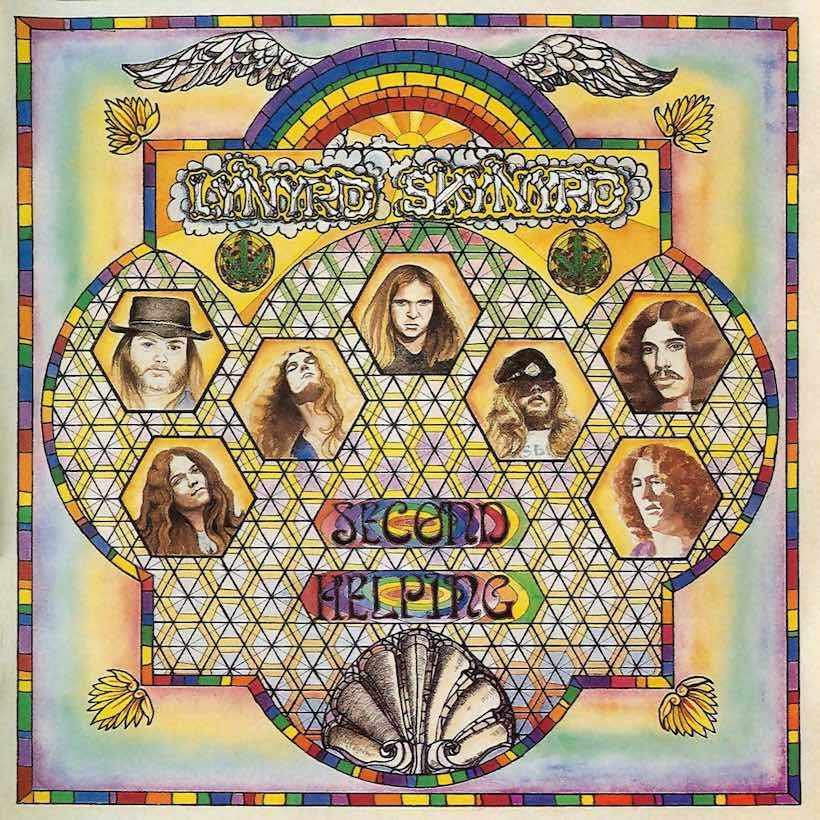‘Second Helping’: Lynyrd Skynyrd Dishes Up A Tasty Sophomore Treat
An antidote to the artifice of glam-rock, this earthy, roots-y album was big news in mid-70s rock.

Lynyrd Skynyrd’s 1973 debut (Pronounced ‘Lĕh-‘nérd ‘Skin-‘nérd) made the Top 30 of the Billboard 200, but its immediate follow-up, Second Helping upped the ante – and confirmed the hard-gigging Florida band was ready to takes its place at rock’s top table.
(Pronounced ‘Lĕh-‘nérd ‘Skin-‘nérd) brokered the band’s transition from the club circuit to much bigger arenas. This allowed them to work out the songs for Second Helping during a series of shows opening for The Who on Pete Townshend and company’s Quadrophenia tour of North America. While these high-profile dates helped Lynyrd Skynyrd gain valuable experience, they were also a baptism of fire.
Love 70s music? Check out our selection of the decade’s best music on vinyl now.
“We were just a band that played clubs, teen dens and pubs,” guitarist Gary Rossington later recalled in an interview with Uncut. “Then, all of a sudden, we were playing in stadiums for 30,000 people. We’d have shots of whiskey every night because we were so scared.”
The group had banished any residual nerves by the time the Second Helping sessions got underway. Produced by the band’s mentor, Al Kooper (Bob Dylan, Blood Sweat & Tears), the album was tight and supremely confident throughout. Highlights ranged from the crunching, brass-enhanced rocker “Don’t Ask Me No Questions,” through to the roots-y, Delta-flavored country-blues of “The Ballad Of Curtis Loew,” and a mesmeric cover of J.J. Cale’s “Call Me The Breeze,” but the album really hit its peak with “Sweet Home Alabama”: a heartfelt paean to Dixie pride written in response to two Neil Young songs, “Southern Man” and “Alabama,” both of which were less than complimentary about the South.
Despite calling Young out in the lyric, the band played it down, with singer Ronnie Van Zant later telling the Los Angeles Times “it was more of a joke than anything else.” Young meanwhile, has since become one of “Sweet Home Alabama”s biggest fans, writing in his 2012 autobiography Waging Heavy Peace, “My own song “Alabama” richly deserved the shot Lynyrd Skynyrd gave me with their great record.”
Certainly rock fans from the Southern states and way beyond took “Sweet Home Alabama” to their hearts. With its killer riff, infectious groove and irresistible sing-along chorus, it had all the hallmarks of a classic rock song and it soon steamed up the charts as a spin-off 45, eventually peaking at No. 8 on the U.S. Billboard Hot 100.
With momentum building around the band, Second Helping was released in April 1974, and discerning rock fans gobbled it up as the album rose to No. 12 in the U.S. Indeed, the record’s eventual double platinum success was well-earned, for Lynyrd Skynyrd’s honest-to-goodness blue-collar rock’ n’ roll songs were becoming increasingly difficult to dislike.
“In those days it was the Alice Coopers and the Kisses and all the makeup,” Gary Rossington said, discussing his band’s longevity with The Inside Story. “That’s who was making it back then. But we were kinda real. We wore blue jeans and T-shirts and our music was our gimmick.”












